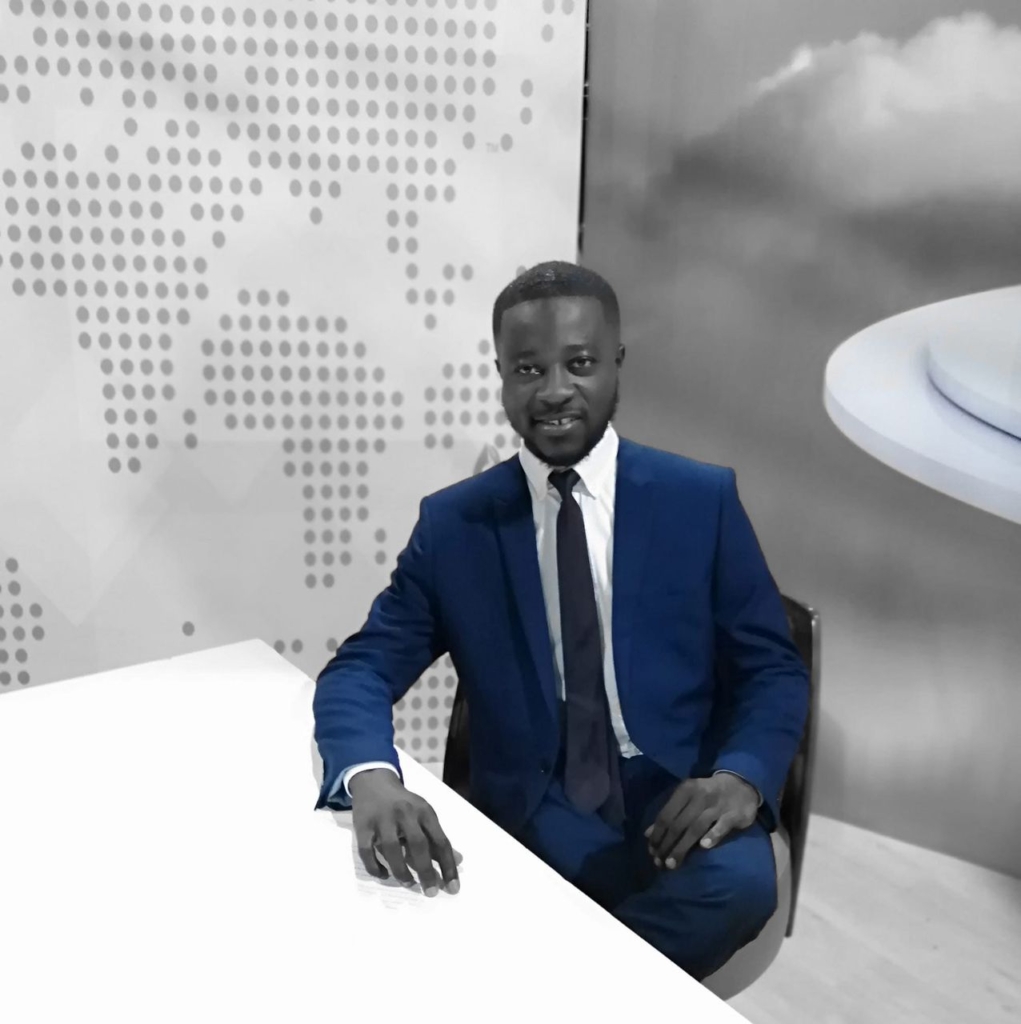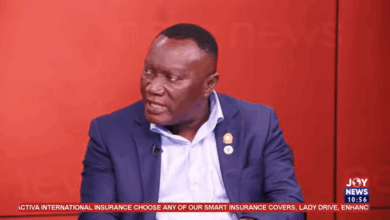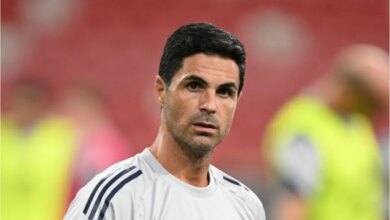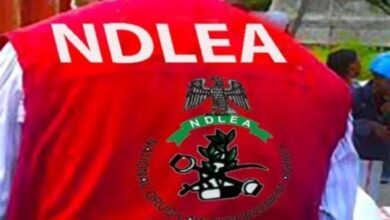In defense of crude methods? Kissi Agyebeng and the politics of anti-Corruption in Ghana


There’s a half-finished essay sitting on my laptop titled In Defense of Crude Methods. It’s been there for years because, while the case for such methods isn’t difficult to make, the clarity required to isolate the issues and defend them—especially when they become embroiled with flawed individuals—is harder to summon. It was originally meant as an argument for the methods of investigative journalist Anas Aremeyaw Anas when it came under heavy attack. But it’s one thing to argue about the moral consistency of a radical method, and another to defend it when that method is inseparable from the absolute character of the person applying it. Also, there are legitimate fears over what happens if such power, such discretion, falls into the hands of a bad actor. To that, the only remedy, it seems, is caution, because when did such fears ever stop us from pursuing anything prudent?
As then, I again find myself at odds with many thoughtful observers whose views I deeply respect for their candor, rigor, or both. And so I return to the same old question that stalled that earlier essay about the Anas Principle: who’s missing the point, me, or everyone else? It is no coincidence that Mr. Kissi Agyebeng, now head of the OSP, once served as counsel to Anas Aremeyaw Anas.
Public opinion remains sharply divided over the OSP’s pace, but also its methods and temperament as well. Every few months, the office resurfaces, mostly accused of being distracted by theatrics. Well, in this case we can, in fact, walk and chew gum. The special prosecutor can and should do the courtroom work with excellence because that, after all, is the core of the mandate. But the so-called trifles; the theatrics, the occasional public drama, do not necessarily detract from that duty. The two are not mutually exclusive by any stretch. I’d contend that they are rather complementary. Far from friction, I see this as a practice in complementing opposites to navigate a bizarre tension between due process (so-called letter of the law) and the theatre world of public accountability. To insist that these are realms never to meet is to say nothing at all in the face of high corruption so eloquently defined to cover public officers, politically exposed persons (e.g., senior officials in government, judiciary, and political parties), and private sector actors involved in corruption.
And so I do hope for this essay to offer an interpretive view of why I hold a certain regard for the OSP’s methods, broadly speaking. Two points of clarification are necessary before I proceed. First, this essay concerns itself with how the Special Prosecutor understands his charge based on his interpretation of the office’s purpose and the methods it demands. This is an attempt to grasp the logic that animates his approach and whether it ultimately advances or undermines the fight against high corruption. Second, I acknowledge that with just about two years to end the special prosecutor’s seven-year tenure, it would not be unreasonable, despite my modest efforts, if the public remained unamused by what they perceive as a lack of tangible results.
Mr Kissi Agyebeng’s Gambit
The OSP emerged from long-standing institutional fatigue. For years, we have endured a weary pattern: high-profile corruption scandals erupt, promises of reform flood the airwaves, prosecutions drag, and then silence. Part of this cycle stems from a legitimate fear of prosecutorial abuse; the legal process, for all its virtues, is easily captured. The evidentiary threshold is high—and rightly so—but that same rigor often ensures that prosecution stalls, because the accused tend to fight back very strongly as expected. That, in essence, is how the status quo sustains itself. Or maybe sometimes, the state has an incompetent case despite the obvious.
Traditional anti-corruption watchdogs like the Attorney-General’s Department, Economic and Organized Crimes Office (EOCO), or even the Auditor-General have long been perceived as ineffective, compromised, partisanly or complicit. Our government policy remedy was to simply embed one extra layer into the bureaucracy to see what luck we find. The creation of the OSP was thus a recognition of this apparent mischief. If it were to succeed in spite of this knowledge, it had to be our bid for a kind of constitutional fifth column that could move differently against elites in high corruption. If we expected something gentler, perhaps we misunderstood the assignment. The Office of the Special Prosecutor, therefore, in many ways, represents a test case for our collective desire to confront corruption differently. I suspect this is how Mr Kissi Agyebeng conceived his mandate. And I would contend that so far, he has barely scratched the surface of what we should have him do, without violating people’s rights, surely.
Critics, of course, find this view naïve. They doubt that the political class that birthed the office ever intended real accountability. Others suggest that the Special Prosecutor himself may harbor intentions that must be checked. Perhaps. But I take a much simpler route to negotiate the uncertainties by going through some public addresses or lectures Mr Kissi Agyebeng delivered as the special prosecutor. He has articulated an understanding of the mission that feels, at least to me, well-grounded.
Mr. Agyebeng’s interpretation of his mandate is not always legible to the public, partly because it is not always procedurally neat, and, because it leans too heavily on the presumption of regularity (and goodwill) on the part of the officeholder. Yet in his public speeches and presentations, available on the OSP’s website, he offers a clearer view of his thinking. Across these presentations, from the “A Few Good Men” lecture and the GII Roundtable on the Corruption Perception Index to addresses on institutional ethics and natural resource governance, a consistent thread runs through. The special prosecutor imagines the work against high corruption to include a campaign against culture itself (or part of it), state enchantment, and weak institutional regimes, if it were to succeed. Recurring themes in his speeches, such as systemic reform, moral or social re-engineering, and civic responsibility, also further lend to the understanding that corruption must be contested simultaneously in law, in culture, and in public imagination.
At UPSA, he invoked familiar cultural tropes to argue that our social systems are uniquely indulgent of corruption. He cited dwaa toa (a kind of reverent pleading) as known in Twi as an example. He described that social phenomenon as hard-to-ignore informal pleas as a form of moral bail request, leveraging reverence and social standing to stand surety for persons of interest. Against this thesis and rendering of “our culture” as embracing of corruption, the chairman of the occasion, H. Kwasi Prempeh, despite agreeing that elite corruption has been normalized, was quick to reject the idea that “our culture” itself is defective for that reason. I agree with Professor Prempeh. It is unhealthy to pluck sayings or cultural frameworks out of context and parade them as proof of moral decay when what they really expose is how easily meaning can be bent to serve parochial interest. That, in itself, is hardly a uniquely Ghanaian flaw and certainly not evidence of “our defective culture”.
Regardless, the key point here is that Mr Agyebeng operates from a clearly discernible playbook. To understand the so-called “crude methods,” one must first grasp his guiding thesis: that corruption in Ghana is a shrewd, adaptive enterprise sustained by state and social enchantment in the sense of how Peter Ekeh describes it in Colonialism and the Two Publics. Here, beneficiaries of public corruption have simply mutated into new forms of primordial loyalties, mostly around political partisanship that leave little room for sustained policy pressure. The corruption fight is therefore personalized into a circus; a caricatured version of aboakyir festival where ruling parties (abrafo) take turns to hunt each other’s thieves for show. The Special Prosecutor seems to intuit this deeply. He knows the fight must by necessity extend beyond formal investigations and prosecutions into the realm of cultural and moral imagination, all the while staying within constitutional limits. In that sense, this worldview shares a lot in common with his former client on the famous Anas Principle, coincidentally popularized by President Akufo-Addo, who instituted the office of the special prosecutor.
The question that follows, then, is whether this reading holds up when measured against the legal and institutional boundaries within which the OSP must operate.
Of course, as a creature of the Constitution, the OSP cannot stray beyond legal bounds. Related to that, any flirtation with extra-legal framing invites accusations of overreach or illegality. Yet that deserves a fair hearing. If public debate remains trapped on first principles, the institution risks collapse, perhaps because of weak legal foundations or the ineffectiveness of the prosecutors, but also because of a rather unhelpful [mis]reading of its purpose. Should that happen, the loss will not be Mr. Agyebeng’s own to bear, per se. Like his predecessor, he will move on to write back ethnographic epistles occasionally, but we would have achieved nothing with this experiment.
What the Office does not need is a mere ‘courtroom commando’ without imagination. We have already seen that approach. Former Attorney-General Godfred Dame stands as a cautionary reminder that mere legal pugilism rarely works, too. This is already the fate of AG Dominic Ayine too, with how the public’s test seems to begin and end with a court victory. We count too much on Danny Crane and Alan Shore type lawyers; never to lose or, at least if they ever did, must be impervious in legal display. It does not work, more so for high-level corruption cases that marshal the best defense attorneys.
My sympathy for Mr Agyebeng is deliberate, but it does not amount to asking for leniency in court either. Surely, the Special Prosecutor must still prove his case. Yet it seems fair to ask whether other institutions of state—particularly the courts— and the public share the OSP’s diagnosis of the corruption problem, and if they do not, whether their own understanding is any sounder than his.
Seen through Mr Agyebeng’s own framing, the OSP’s strategy begins to make sense: public disclosures, unorthodox methods like that of a social media troll, even a touch of confrontational theatre all seem designed to force a reckoning. Not only in the courts, but in public imagination as well. In this view, the law is only one of several terrains in the fight against corruption. Admittedly, the OSP will be judged on what it achieves primarily with the legal process. Nonetheless, the OSP’s style draws its strength from two sources, I surmise: the authority of the state and the public’s professed resentment of corruption. Perhaps the Special Prosecutor misreads how much wiggle room that affords him, but even so, I would consider that a forgivable miscalculation of an optimist because what stops us?
Still, it’s easy to see why some regard this approach as naïve. The OSP sometimes seems to assume that its very existence entitles it to public goodwill, and that any effort by the institution, especially if it departs from conventional attorney general strategies, should automatically command public support. This expectation often surfaces in the entire office’s (Mr Agyebeng and Mr Sammy-Darko) reactions to criticism. At times, they appear surprisingly surprised to be second-guessed by journalists and the public, as though society’s cynicism should dissolve against the new Office in light of our admissions to the structural defects of the attorney general’s framework.
But this expectation misunderstands Ghana’s political culture. We do not necessarily have a unified public sphere because we have a steadily growing culture of democratic transitions. Therefore, what we must grapple with is a fragmented civic terrain. As a response to that, some crave radical disruption; others prefer procedure and caution. Many are simply too disillusioned to be interested. Meanwhile, elite resistance is instinctual and rarely unencumbered by ideological or moral convictions. Those with the reach to commit high corruption belong to a class that resists intrusion by reflex. And so, different as the approach may be, it often feels mismatched to the current civic moment, where there is an apparent tension between moral urgency to act against high corruption and political readiness for it.
Despite the critique, the Special Prosecutor often gets his diagnosis right, especially regarding the systemic character of corruption and the institutional inertia that protects it. In his public addresses, Mr. Agyebeng often dispenses with legalistic restraint. But in the end, he holds on to – maybe too dearly – a kind of conceptual and epistemological critique of corruption, state enchantment and institutional weakening that could easily get dismissed as “long talk, no action”.
The Performative Logic
The now-infamous declaration of Ken Ofori-Atta as a “fugitive” perhaps best captures the OSP’s performative logic. Unable to secure the former Finance Minister’s appearance despite multiple summonses, the office abandoned procedural niceties and went straight to the public with damning language. To legal purists, it was an overreach. To me, it signalled awareness to the point of it all. A similar logic underpinned the recent exchange between the OSP and former NPA boss Mustapha Hamid, who’s standing trial for multiple charges arising from his work in public office. When the accused publicly or perhaps playfully dismissed his case as a “useless case,” the OSP reposted the charges in response. Many found it petty or vindictive; I saw it differently. In high corruption cases, it reads as —to borrow urban slang— aura for aura. It was giving energy. Spectacle, after all, is part of the methods of obfuscation used by those charged; it should be permissible for the state to vary its style too.
I take that episode, including the call for an Interpol Red Notice, as a willingness to play like the adversary does. When conventional state channels falter through excuses, delay, or procedural gamesmanship, anti-corruption institutions must be willing to, without subverting their constitutional limits, act extreme in the public interest. That, too, is a method. Of course, it does not fit neatly into conventional modes, but it does speak to the institutional dynamics that permit high corruption in public governance. Where power routinely guarantees immunity, encouraging public spectacle as a reaction is hardly ill-advised.
The reality is that fighting high corruption against political elites, especially, cannot afford easy slumps into what might be called elite due process; a variant of justice that is slow, never-ending and bureaucratically gamed for the highborns. When it goes unchallenged combatively, the only viable by-product is a kind of perverse democratic system that leaves the majority disillusioned further. The only caution against this is that the challenge need not be unconstitutional to make the point.
I do see the point also that, in furtherance of this perspective, it is also in Mr. Agyebeng’s interest—and that of whoever succeeds him—to win the public over at the level of first principles too. Because if citizens cannot meet the office at the level of its framing, the feedback (or backlash) will be misaligned and destructive. The danger is that if this experiment fails again, the replacement may be something more pliant, more predictable, or even dead.
Closing Reflection
Perhaps more troubling than the OSP’s methods is the impoverished discourse surrounding corruption itself. The real question isn’t whether the Special Prosecutor is doing too much or too little; it is whether a public imagination constrained by legal-technocratic thinking can envision any other path forward.
Yes, dissolving the office might offer short-term relief. There are already whispers calling time on Mr. Kissi Agyebeng. But all that misses the deeper point that there is no “special prosecutor” [no pun intended] waiting in the wings to do this job any more exceptionally than we have. Corruption, too often, is reduced to a moral lapse rather than recognized as a political economy, an adaptive system of patronage that requires ruthlessness.
Given that the OSP was designed to tackle corruption of a “special kind” by our own imagination, I have developed a high tolerance for the discomfort it provokes among its targets. Thankfully, history shows that they are mostly well catered for by very elite lawyers; they have their ways around with procedural delay, and benefit a legalese culture too timid for meaningful confrontation. In practice, the OSP is often structurally outmatched once its cases reach court. The idea that it wields excessive power is more myth than reality.
DISCLAIMER: The Views, Comments, Opinions, Contributions and Statements made by Readers and Contributors on this platform do not necessarily represent the views or policy of Multimedia Group Limited.
DISCLAIMER: The Views, Comments, Opinions, Contributions and Statements made by Readers and Contributors on this platform do not necessarily represent the views or policy of Multimedia Group Limited.
Source link




